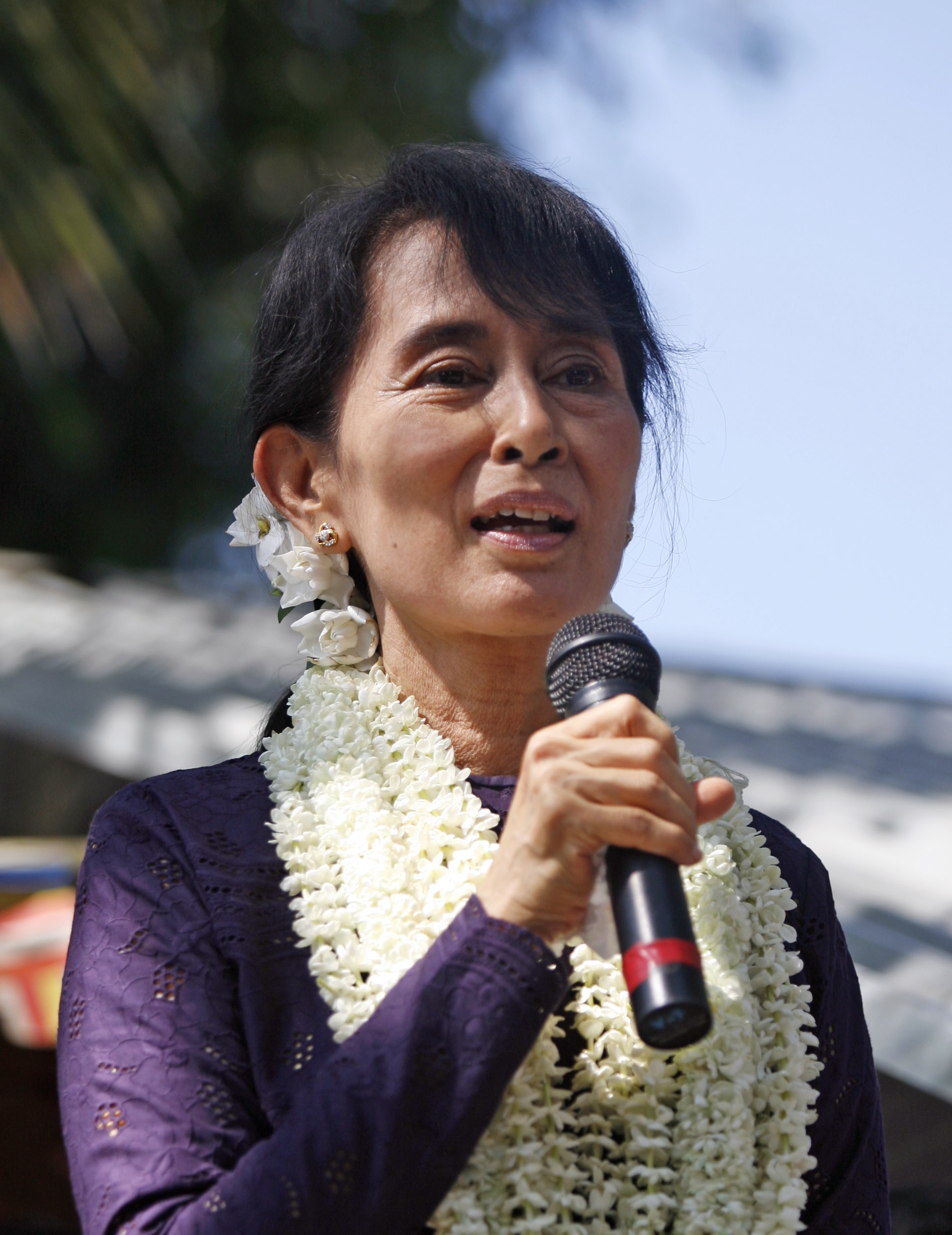by Layla Link
Aung San Suu Kyi is a Burmese social democratic
stateswoman, politician, diplomat and author who serves as the First State
Counsellor and Leader of the National League for Democracy. She was born in Yangon, Burma, in 1945. After years of living and studying abroad at Oxford
University,England, she returned home to find widespread slaughter of
protesters rallying against the brutal rule of dictator Ne Win.
Ne Win was a brutal dictator. After leading a
government from 1958 to 1960, Ne Win deposed Prime Minister Nu two years later
with the help of the army, declaring both martial law, which involves a
military government suspending ordinary law, and he claimed that:
“Parliamentary democracy was not suitable for Burma.” Ne Win was also prone to violent rages;
throwing an ashtray at one wife’s throat, assaulting an underling he believed was
flirting with his wife, and personally breaking up a Christmas Eve party held
by foreign diplomats and tearing a woman’s dress as he shoved her to the floor.
Suu Kyi bravely spoke out against him and
initiated a nonviolent movement toward achieving democracy and human rights.
However, in 1989, the government placed Suu Kyi under house arrest, and she
spent 15 of the next 21 years in custody. She was finally released from house
arrest in November 2010 and subsequently held a seat in parliament for the
National League for Democracy party until 2015. That November, the NLD won a
landslide victory, giving them a majority control of parliament and allowing
them to select the country's next president. In April 2016 Suu Kyi was named
the state counsellor of Burma, a position above the presidency that allows her
to direct the country's affairs.
Aung San Suu Kyi was awarded the Nobel Peace
Prize in 1991. This was awarded for her non-violent struggle for democracy and
human rights. Suu Kyi is an inspiration to all women as she challenged
dictatorship with grace and suffered fifteen years imprisoned in house arrest. Although
under house arrest, Suu Kyi was granted permission to leave Burma under the
condition that she never return. Rather than abandon her people, Suu Kyi
submitted to house arrest and decided to sacrifice a life with her husband and
her two young sons, in order to stand by her people: "As a mother, the
greater sacrifice was giving up my sons, but I was always aware of the fact
that others had given up more than me.” Suu Kyi is a living example that women
can be both giving and powerful and inspires many young girls in dictated
countries.

Comments
Post a Comment
Comments with names are more likely to be published.